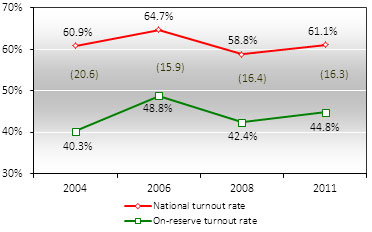The reason Trudeau hasn’t contradicted Mr.Trump is because he knows he’s right
The liberal media (namely CBC) has painted Justin Trudeau’s lack of response in regards to presidential hopeful Donald Trump criticisms of NATO and NAFTA as a calculated and deliberate politeness on the part of the PM. The comments are PM is refusing to respond to are Trumps indication that he will “rip up NAFTA” and force countries in NATO to make appropriate contributions.
Being polite over this issue is stupid and the Liberals know it. NATO membership has been a thorn in the Canadian side for years, and NAFTA never really worked for us to begin with. The Trudeau government is being coy on this issue so as to separate themselves ideologically from US Republicans. However, more and more its looking like it will be difficult at best for Hilary Clinton to make it to the Oval Office, which means its time for Canadian politicians to truly act bi-partisan and agree with your ideological opposites by admitting that Canadians don’t want NATO or NAFTA anymore.
Since this article will likely exceed 2000 words if I combine both issues, today I will focus on the ludicrous nature of any Canadian politician supporting NATO. and when I next write, I will address the subject i’m less versed in (I need the chance to talk to an economist first), the economic policies of NAFTA and why they’re terrible for Canada.
All up in a tizzy, Canadian ministers says the dissolution of NATO would be bad for international peace, without much explanation as to why.
"Sajjan said collective defence is central to the alliance, which itself has been instrumental in helping bring peace and stability to Europe and other parts of the world."
Even Ted Cruz has come out and said abandoning NATO would be a preemptive surrender of sorts.
Donald Trump is by no means the first to criticize NATO. Does anyone remember Robert Gates? Gates served as secretary of defence under both Bush 42, and Obama (not many secretaries continue after a president from the opposite party is elected) making he arguably one of the most based, centrist Secretaries of Defence in memory. So i’m sure such a centrist sits somewhere in between the blanket support Canadian politicians seem to have lately, and the polar opposition the Mr. Trump possesses.
"The blunt reality is that there will be dwindling appetite and patience in the US Congress - and in the American body politic writ large - to expend increasingly precious funds on behalf of nations that are apparently unwilling to devote the necessary resources or make the necessary changes to be serious and capable partners in their own defence … Nations apparently willing and eager for American taxpayers to assume the growing security burden left by reductions in European defence budgets.”
Up here in Canada the coy nature of responses must because Canadian love the protection we get from NATO right? Well actually, we haven’t really been fans if you look through headlines from the last few years. Here’s a quote from a 2014 article about Canada’s withdrawal from the NATO mission in Afghanistan.
“On Tuesday, Canada officially ended its combat mission in Afghanistan. It should never have started.The war has been a dismal failure. It did not achieve its primary aim of capturing or killing terror chief Osama Bin Laden. … Nor has it defeated the Taliban. As Canadian and other NATO-led troops prepare for their final 2014 withdrawal, the insurgents remain dangerous, active and unbowed.”
Furthermore, Trump is right about insufficient spending. Not only have Canada’s military contributions been abysmal (compare the number of troops we commit to NATO compared to a nation with similar population such Poland if you want to be shocked) but even after the Afghan mission we didn’t really want to pay up for our share of rebuilding the country we just helped destroy, because it was unpopular with Canadians. Even the Canada-NATO wiki page seems to say we might not be making much in the way of monetary contributions
“Given the small size of Canada's military, the importance of Canada's contribution to NATO has primarily been political rather than military”
Oh yeah and more and more it looks like the Saudis, who we’re delivering LAVs to were actually more complicit in 9/11 than anyone thought, and Bush 42 should probably have invoked the NATO Collective Defence clause against Saudi Arabia rather than Afghanistan.
So we’ve got massive spending and loss of life (significant enough to warrant its own wiki page) from the one time NATO’s collective defence clause has been used. Not only that but we likely went to war with the wrong state so the spending and loss of life was in vain. After that fact, Canadians didn’t have, or didn’t want to spend the money needed to rebuild the country we and the other NATO allies destroyed. It would seem to me that the result of NATO missions such as Libya and Afghanistan are pretty dubious. Not only are that, but Trump is right, we don’t spend enough on NATO. In 2016 we spent marginally more than (based on % of GDP) than Spain and Italy, who both had failing economies at the time. Canada hasn’t made it to the 2% contribution it promised, we’re at about 1% of half of what we said we’d spend, making Mr. Trump correct about our (lack off) spending.
NATO is bad for Canada, and we can’t afford it. If the Liberals had any balls they would stop subtly throwing shade at Donald Trump and in a wholly bi-partisan move, admit he might be right about the need for NATO in a world with the UN and some many other already costly treaty bodies.


